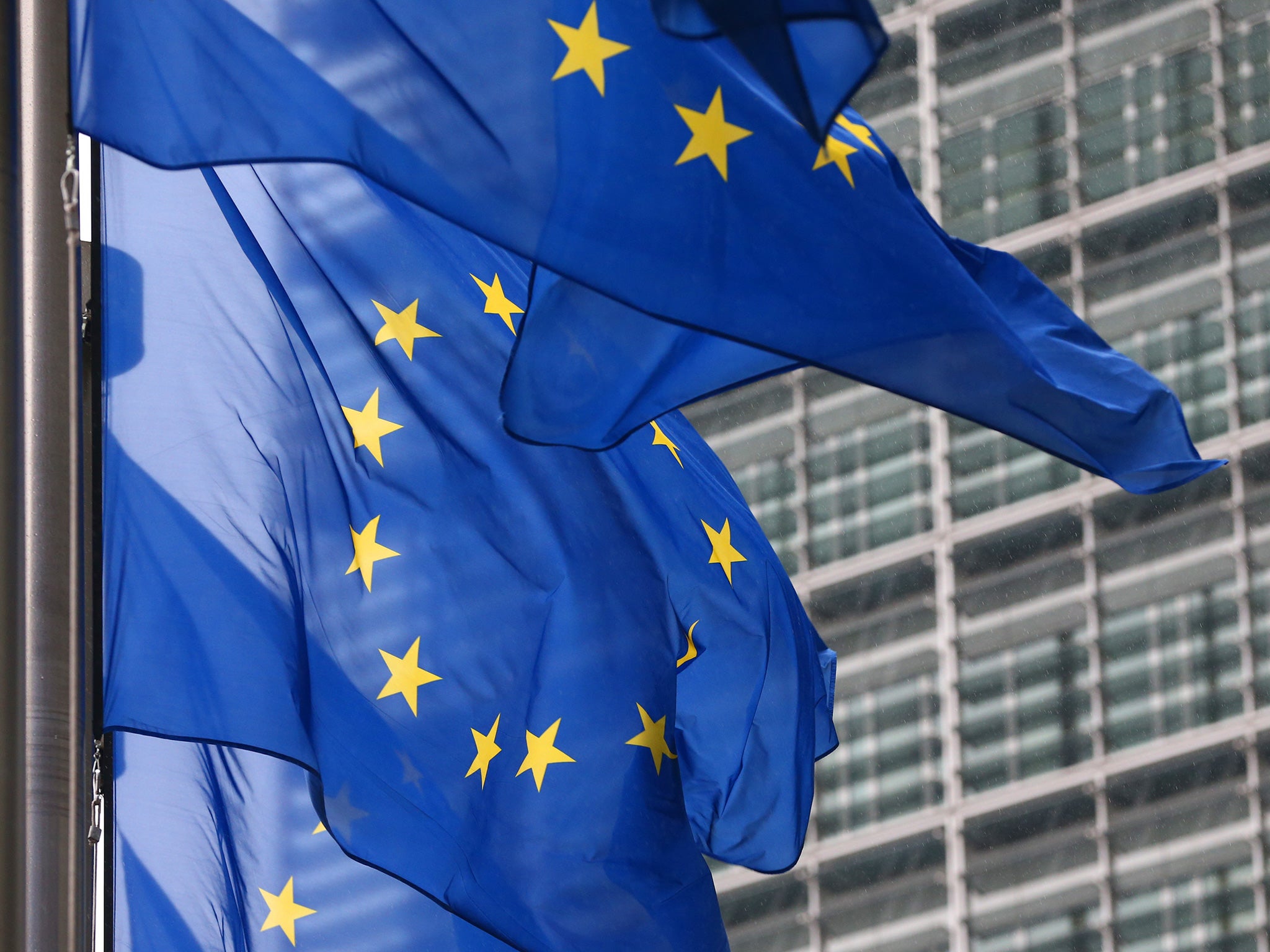EU referendum: Business and science figures need to add their voices to the 'In' crowd
Until recent days, it has been campaigners for a 'Brexit' who were making the most noise

At last, supporters of Britain’s membership of the European Union are finding their voice. Until recent days, it was campaigners for “Brexit” who were making the most noise, and appeared to be making the running. Now trusted figures such as Sir John Major and Lord Heseltine have restated the economic case for remaining in the EU. They have been joined by Lord Hague, the former Foreign Secretary, who made clear he is likely to argue for In during the referendum expected next summer.
His words are highly significant because Lord Hague is no fan of the EU, a Eurosceptic who, as Conservative Party leader, fought the 2001 general election on a “save the pound” ticket. It didn’t work, but his pitch – to be “in Europe, but not run by Europe” – is probably where a majority of the public are today.
Other senior Tories pointedly keep their options open. The coming referendum cannot be disentangled from the battle to succeed David Cameron, since he has already announced he will not lead his party into the 2020 general election. So Boris Johnson and Theresa May flirt with the Out camp, and wait to see which way the wind is blowing before taking a decision that could make or break their hopes of becoming prime minister. They should resist the temptation to join Nigel Farage and the rest of the Outers, and put what is right for the country before personal ambition.
The interventions by Sir John, Lord Heseltine and Lord Hague are a welcome reminder that Mr Cameron should not rely on his renegotiation of the UK’s membership terms to win the referendum. Whatever the merits of exempting Britain from “ever-closer union”, safeguarding the interests of countries outside the euro and tinkering with benefits paid to EU migrants, voters are more likely to be influenced by the big picture and the fundamental choice. However, the In crowd will need to draw on a much wider group of cheerleaders than politicians who could be portrayed as yesterday’s men by an aggressive, anti-Establishment Out campaign.
As we report today, British science would suffer a huge setback if the UK withdrew from the EU because of a loss of funding and opportunities to collaborate – for example, at Cern. Leading scientists have joined forces to make this claim – exactly the sort of ammunition the In campaign should be firing. There is overwhelming evidence of the huge economic and social benefits of EU membership. The In camp must now get its act together and quickly bring together individuals such as these scientists who can speak with authority and without being tarnished by the grubby trade of politics. The fate of its campaign may depend on it.
Respected figures from the world of business should be deployed. One lesson from last year’s referendum in Scotland is that opponents of independence left it too late to ensure the voice of business was heard. The In campaign is already being dubbed “project fear” by the Outers; Better Together was similarly labelled in Scotland. So it must base its case mainly on the many positive benefits of EU membership rather than fear of an unknown destiny outside the bloc.
In Brussels last Friday, Mr Cameron said he firmly believes that, on economic and national security grounds, “the best future for Britain is in a reformed EU”. Now that he has come off the fence, he and his ministers should trumpet the wider case for membership and not wait until he has completed his renegotiation. As we approach the start of a critical year that will decide Britain’s place in the world, there is not a moment to waste.
Join our commenting forum
Join thought-provoking conversations, follow other Independent readers and see their replies
Comments